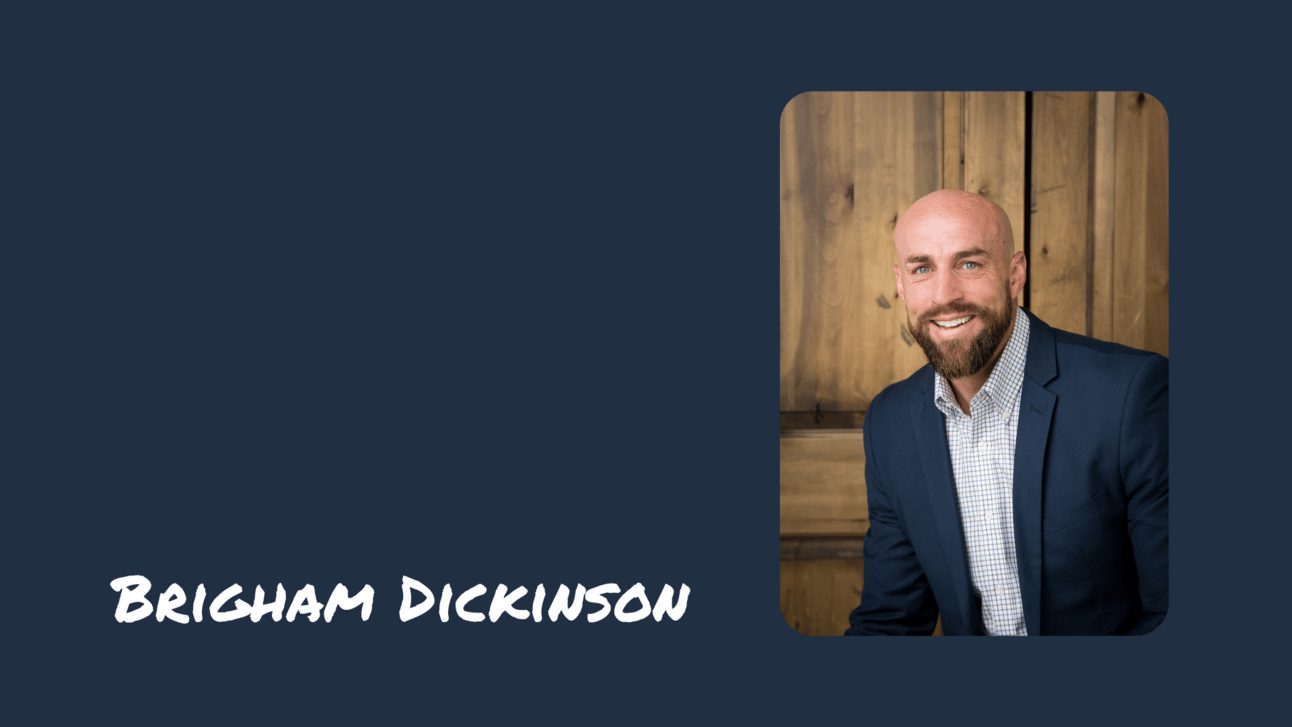The impact of booking more calls with Brigham Dickinson
Notes on wowing customers, booking rates, and continuous feedback

❝
If you can make it a career for them, you’ll keep CSRs for a very long time.
Brigham Dickinson is the founder of Power Selling Pros, a company that helps contractors increase bookings through CSR training and coaching.
We talked about the company’s background, wowing customers, making more of the calls already coming in, and more. Our conversation’s been lightly edited for brevity.
PSP is laser-focused on CSRs. Do you have a background in that department?
My first boss out of college, Royal, managed a company called Arctic Air that he sold to Service Experts. During that [Service Experts’ expansion], Royal had me answering phones and doing his marketing because I just finished with a marketing degree — that was my future.
Kevin Comerford, a mentor of mine, called me up and said he’d be in Chico and would like to spend some time together. I thought for sure it was about my marketing. [When we met], he gave me about five minutes [on marketing] and then moved all the stuff to the side. He said, “Great, now let me see how you answer the phones.” I go, “Thank you for calling Arctic Air. This is Brigham, how can I help?”
“That’s it?” he said. For the next two hours, he drills me on how to answer the phones. About a year later, Kevin left to start his own thing — Service Champions — and the foundation at Service Experts, at least in that district, started to get really shaky for me.
What happened after that?
I started my own marketing company and had each of those companies hire me as an independent so I couldn’t get fired. I found a company in Florida that said they could do a Manual J calculation in five minutes or less and thought if I were to merge the marketing company with that software company, it’d go gangbusters. I moved my family to Florida and within about five months, that company went kaput.
During that time, I was helping a couple of companies with their marketing, and the only way I’d get paid was if I made a sale. A customer brought me in one day and said, “Your leads are no good.” I asked what he meant. He said, “Well, they just want a ballpark price.” He said he needed to put my advertising on hold. Now, I was trained by Kevin Comerford to answer phones; I was good at it. I said, “You shouldn’t be firing me. You should train your CSRs to book those calls and wow those customers.”
He asked, “What do you think I should train them on?” I pulled out a piece of paper and said, “With this [the Pattern for Excellence].” Within a month, his call conversions were up 20%.
What is the Pattern for Excellence?
It’s eight principles with one outcome. The principles include a positive attitude, confidence, listening skills, expressing empathy, reassuring the customer, asking the right questions, creating value, and being grateful. That’s how you create a “Wow Experience.”
Can you give me the rundown on PSP?
[We train] people how to answer the phones, book calls, wow customers, and keep the dispatch board full. We also train people on how to call out. We teach them how to sell service agreements over the phone; we teach them how to turn service calls into replacement calls; and we teach company leaders to train and incentivize their teams to do that proactively — if you can make it a career for them, you’ll keep CSRs for a very long time.
The program itself takes about a year and a half to complete; it’s a bit of a university. There are four levels of certification. We now have over 1,000 trainees in our program, and 40 employees, and we’ve since started a night answering service to answer your phones at night and on weekends. We have a 95% booking rate with that service.
It’s the most neglected department in our industry. We’re the only ones that specialize in just training CSRs. We stay in our line, and do a very good job, and it’s paid dividends.
❝
That’s an extra million dollars a year just by booking more of the calls that are already coming in.
Can you elaborate on some of the principles you mentioned earlier?
I’ll show you four: listen, care, reassure, and ask when. Every customer has a human emotional need; every sale is driven emotionally. Logic justifies it, but emotion is the driving force. Those emotional needs need to be taken care of first. Here’s how we do it:
A customer gets on the phone and says they’re looking for a ballpark price.
CSR: Great, tell me more about your situation. What’s going on?
Customer: My air conditioner has been blowing hot air.
CSR: Oh my gosh, that’s terrible. How long has it been doing that?
Customer: For the past couple of days.
CSR: Wow. Well, we can totally help with that. When would you like us out?
Customer: This afternoon would be good.
What just happened? I listened, I cared, and I said we could help them. Then I simply asked a question. I’m following a set of principles, and that’s just one application.
Do you have a “napkin math” example that illustrates the value of increasing booking rates?
Let’s say that you get 30 phone calls a day and you book 60% of those. That’s about 18 calls that you’ve booked — great. Let’s say your average ticket is $500 (I realize it’s higher on replacements, but I’m sticking with simple math). Well, that’s $9,000 a day, and when it’s all set and done, you’re looking at about $2.2 million annually. Well done. At 60% conversion, you’re a $2.2 million shop — that’s great.
But if we can increase call conversion to 85%, that means we’re booking 25.5 calls out of 30. And if we’re booking 25.5 out of 30 with the same average ticket, now, it’s over $3 million a year. That’s an extra million dollars a year just by booking more of the calls that are already coming in.
What’s something you notice right away when working with new contractors?
They’re disengaged. [CSRs] aren’t emotionally engaged in their work; it’s a job that they won’t be at for long. We want to create a culture of fun. And the reason it’s fun is because they can take these principles — positive attitude, confidence, empathy, listening skills — and use them outside the office.
How, specifically, do you start working with a new contractor?
The first thing we do is find out if their calls are recorded. Are they recorded? Great. Are they tracked? Great. If they’re recorded and tracked, we have a team of call monitors that’ll begin listening to them. In the meantime, we’re setting the expectation for the trainees via webinar, or we’ll even fly out.
We begin the coaching process and teach and practice this [the Pattern of Excellence]. It’s two coaching sessions a month, for half an hour, per CSR. We usually give you about three months to learn the Pattern of Excellence, and then there’s a pass-off where we talk about next-level stuff. Next-level stuff, for example, is turning a dispatch fee objection into a club membership sale.
I noticed your recent partnership with Rilla — congrats. Any color on that?
With Rilla, contractors are getting pushback from technicians. How do you overcome technicians who don’t want to be recorded? You reason with them. I simply say, “Look, I know this is different. The truth is that CSRs have had their calls recorded for the last 15 years — even policemen are recorded. Nothing is in the dark anymore. It’s okay, and it’s gonna be okay. It just reminds you that you have to be on your game. I know there may be companies that don’t do it, but we’re on the cutting edge. So what you risk by going elsewhere is your own personal growth.”
It’s about finding out how we can take a $3 million comfort advisor and turn them into a $4 million comfort advisor. Power Selling Pros is built for this technology. It’s exciting for us because we already have a system that we can plug in and use. The manager’s not gonna have time to monitor all these calls anyway. Say they have 50 technicians. Four calls a day, 90 minutes each? Good luck. You need an army to take that data and actually make it useful. We’ve been building up a team of call monitors for 15 years, and now have the ability to monitor technicians and provide feedback to them on a regular basis.
📬 Get our stories in your inbox
Keep reading
Colorado, Michigan launch IRA rebates, bringing active total to nine states
In just the past two months, the number of states with active programs has grown from two to nine
ServiceTitan mulling IPO before year-end
The company has been waiting for "favorable market conditions," according to an investor


